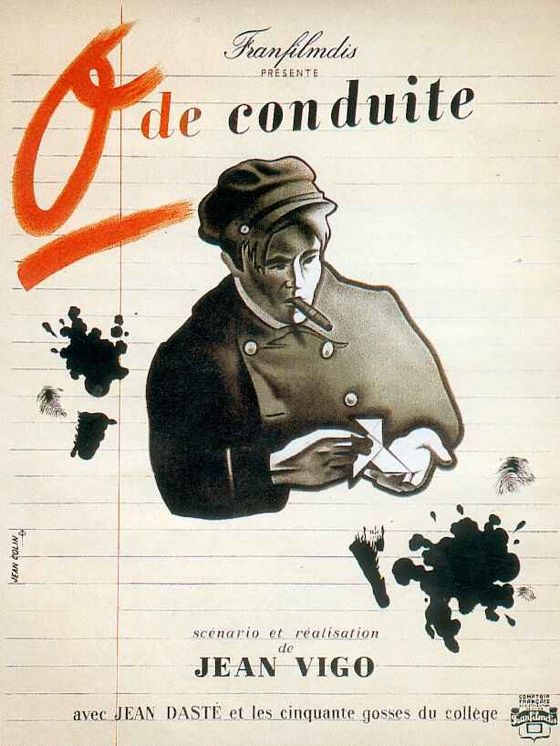
There are quite a number of great films about children, about the world of the child, but Jean Vigo's Zéro de Conduite, from 1933, is the only great film I can think of which feels as though it was made inside the world of the child and smuggled out like contraband past whatever Iron Curtain of time or experience separates adults from that world. It is as though the film was created by a preternaturally intelligent 14 year-old for other preternaturally intelligent 14 year-olds. It's flattering to feel so addressed — like having a 14 year-old punk assume as a matter of course that you will want to join him in vandalizing an abandoned garage. It takes you back — not as the mind takes you back, but as some powerful sense memory does.
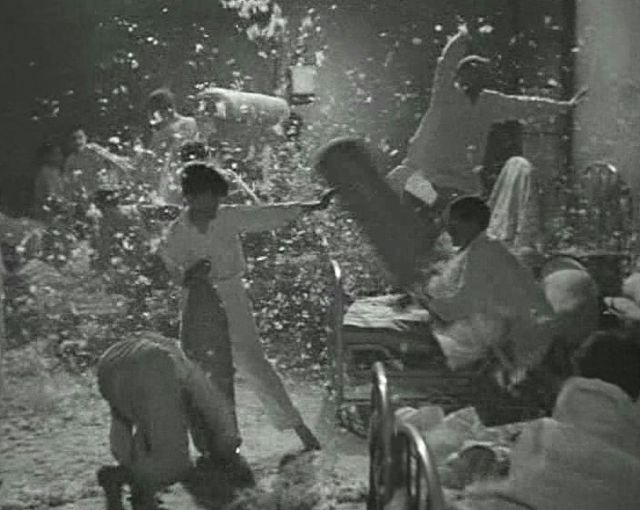
Baudelaire said that genius is the ability to summon back childhood at will, and all art on some level summons us back to childhood, to the vividness and innocence of sensation we associate with childhood, but when an artist depicts childhood itself there is almost always some wistfulness in the process. Bergman's great resurrection of the world of his childhood, Fanny and Alexander, is suffused with a sense of loss, a sense that ghosts are being summoned. Truffaut's Les Quatre Cents Coups, which owes so much to Vigo's film, has another kind of wistfulness, a moral wistfulness, asking us to judge, as adults, the wrongs done to children. When Antoine Doinel looks questioningly, almost accusingly, at the camera at the end, we know it is the world of adults which is being questioned and accused, and has been questioned and accused throughout the film.
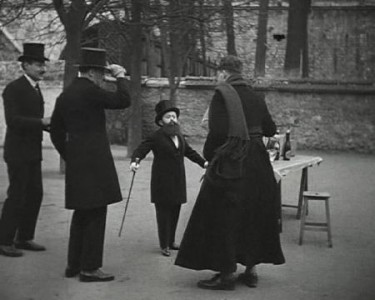
But Zéro de Conduite is perfectly free of wistfulness, and of special pleading. The hatred of unjust or preposterous adults is visceral and without nuance. Vigo was an anarchist by political persuasion but the film is not a manifesto — it expresses in purely emotional terms the way fatuous authority figures made him feel, in his gut. And the high spirits of the kids, their love of disorder and transgression, are mirrored in the way the film is constructed.
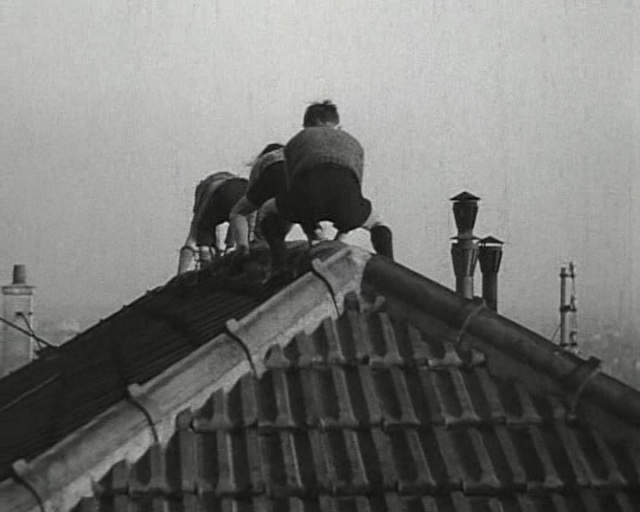
A short episodic narrative about the insurrection of a group of boys at a boarding school, it refuses to stick to one aesthetic strategy. Images with the tone of lyrical documentary give way to dreamlike sequences that seem to record the imaginings of the boys. More or less conventional narrative passages are punctuated by blatant camera tricks, which call up a vision of the filmmaker sticking out his tongue at the audience.
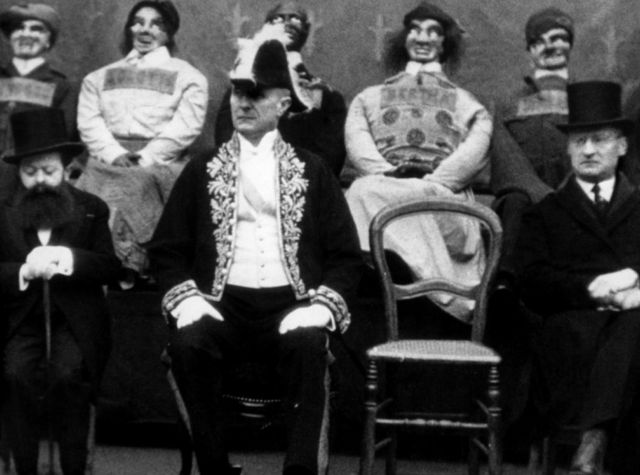
Crude slapstick bits alternate with scenes of victimization suffused with an almost tragic aura. The film moves with the imaginative, nearly chaotic speed — and with the electrifying energy — of a child's mind. The result, however, is not disjointed or disorienting, because the mind driving it is a recognizably coherent mind — just wilder and freer than an adult's mind can often afford to be. In the whole history of cinema there is nothing else quite like it.
